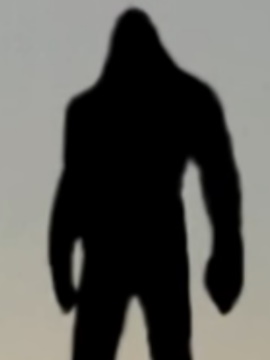A Review Of "The Stone Man" By Luke Smitherd
A Brutal, Brilliant & Classic "What If" Tale
James C. Rocks
"THE STONE MAN is a novel that intrigues, enthrals, horrifies, thrills, and hits the reader with an emotional resonance as only the best stories can."
I've been reading science fiction since the very early seventies and so much of what I read was SF in the more classic sense, where it wasn't so much science as speculative fiction. The moment I read the description for Luke Smitherd's book, "The Stone Man", I was intrigued.
 In telling his tale, which is mostly set in the UK, Smitherd presents us with a gritty tale of speculative (and science) fiction that is entertaining despite its ending; a realistic finish that both delights and frustrates in almost equal measure.
In general terms there isn't a great deal of violence in the story however it does have its moments and at the scene mentioned above, a moment of extreme and visceral horror, Smitherd clarifies the apparent purpose of the Stone Man. As might be expected of a "what-if" story, the tale is one of suspense rather than action, and, through a series of surprising events, skillfully bringing everything to its dramatic conclusion. I won't reveal the details but it was that conclusion that was, for me, the most frustrating aspect of the story despite the fact that it was probably, given the scenario, extremely realistic.
As I say above, Smitherd's tale poses a simple composite question:
Where has it come from, where is it going, and what does it want?
Although it doesn't answer one of the parts it does answer the others ... sort of, so I guess that's something. I've read several more books by Smitherd, including the first stone man sequel ("The Stone Men"), and I am honestly beginning to think that's just the way he rolls.
In conclusion, the book started slowly but it found its groove and I enjoyed it all the way to the end.
One final thing. I am, by nature, a grammar Nazi, it goes without saying (although I have) I am likely to spot any obvious grammar and spelling errors and perhaps it is a tribute to Smitherd's storytelling but I don't recall there being many, despite the fact that many Amazon reviewers insisted on numerous typos and grammatical errors.
In telling his tale, which is mostly set in the UK, Smitherd presents us with a gritty tale of speculative (and science) fiction that is entertaining despite its ending; a realistic finish that both delights and frustrates in almost equal measure.
In general terms there isn't a great deal of violence in the story however it does have its moments and at the scene mentioned above, a moment of extreme and visceral horror, Smitherd clarifies the apparent purpose of the Stone Man. As might be expected of a "what-if" story, the tale is one of suspense rather than action, and, through a series of surprising events, skillfully bringing everything to its dramatic conclusion. I won't reveal the details but it was that conclusion that was, for me, the most frustrating aspect of the story despite the fact that it was probably, given the scenario, extremely realistic.
As I say above, Smitherd's tale poses a simple composite question:
Where has it come from, where is it going, and what does it want?
Although it doesn't answer one of the parts it does answer the others ... sort of, so I guess that's something. I've read several more books by Smitherd, including the first stone man sequel ("The Stone Men"), and I am honestly beginning to think that's just the way he rolls.
In conclusion, the book started slowly but it found its groove and I enjoyed it all the way to the end.
One final thing. I am, by nature, a grammar Nazi, it goes without saying (although I have) I am likely to spot any obvious grammar and spelling errors and perhaps it is a tribute to Smitherd's storytelling but I don't recall there being many, despite the fact that many Amazon reviewers insisted on numerous typos and grammatical errors.


















 In telling his tale, which is mostly set in the UK, Smitherd presents us with a gritty tale of speculative (and science) fiction that is entertaining despite its ending; a realistic finish that both delights and frustrates in almost equal measure.
In general terms there isn't a great deal of violence in the story however it does have its moments and at the scene mentioned above, a moment of extreme and visceral horror, Smitherd clarifies the apparent purpose of the Stone Man. As might be expected of a "what-if" story, the tale is one of suspense rather than action, and, through a series of surprising events, skillfully bringing everything to its dramatic conclusion. I won't reveal the details but it was that conclusion that was, for me, the most frustrating aspect of the story despite the fact that it was probably, given the scenario, extremely realistic.
As I say above, Smitherd's tale poses a simple composite question:
Where has it come from, where is it going, and what does it want?
Although it doesn't answer one of the parts it does answer the others ... sort of, so I guess that's something. I've read several more books by Smitherd, including the first stone man sequel ("The Stone Men"), and I am honestly beginning to think that's just the way he rolls.
In conclusion, the book started slowly but it found its groove and I enjoyed it all the way to the end.
One final thing. I am, by nature, a grammar Nazi, it goes without saying (although I have) I am likely to spot any obvious grammar and spelling errors and perhaps it is a tribute to Smitherd's storytelling but I don't recall there being many, despite the fact that many Amazon reviewers insisted on numerous typos and grammatical errors.
In telling his tale, which is mostly set in the UK, Smitherd presents us with a gritty tale of speculative (and science) fiction that is entertaining despite its ending; a realistic finish that both delights and frustrates in almost equal measure.
In general terms there isn't a great deal of violence in the story however it does have its moments and at the scene mentioned above, a moment of extreme and visceral horror, Smitherd clarifies the apparent purpose of the Stone Man. As might be expected of a "what-if" story, the tale is one of suspense rather than action, and, through a series of surprising events, skillfully bringing everything to its dramatic conclusion. I won't reveal the details but it was that conclusion that was, for me, the most frustrating aspect of the story despite the fact that it was probably, given the scenario, extremely realistic.
As I say above, Smitherd's tale poses a simple composite question:
Where has it come from, where is it going, and what does it want?
Although it doesn't answer one of the parts it does answer the others ... sort of, so I guess that's something. I've read several more books by Smitherd, including the first stone man sequel ("The Stone Men"), and I am honestly beginning to think that's just the way he rolls.
In conclusion, the book started slowly but it found its groove and I enjoyed it all the way to the end.
One final thing. I am, by nature, a grammar Nazi, it goes without saying (although I have) I am likely to spot any obvious grammar and spelling errors and perhaps it is a tribute to Smitherd's storytelling but I don't recall there being many, despite the fact that many Amazon reviewers insisted on numerous typos and grammatical errors.



